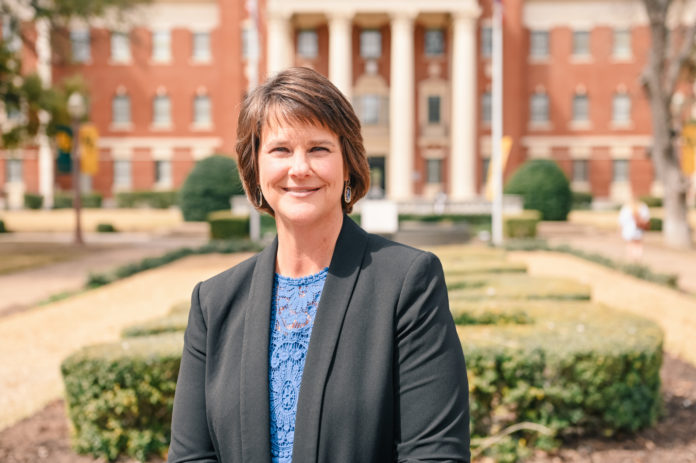
By Jenna Fitzgerald | Copy Editor
After 16 years of membership in the Association of Teacher Educators (ATE), clinical associate professor and Baylor alumna Dr. Rachelle Rogers has taken the gavel and assumed her new role as the organization’s president.
According to its website, ATE was founded in 1920 as “the only national, individual membership organization devoted solely to the improvement of teacher education.” Currently, the organization’s members include about 1,300 teacher educators from across the United States, including K-12 teachers, university professors, administrators and counselors.
“When I was completing my doctoral studies, my professors here at Baylor introduced me to the Association of Teacher Educators, and they said, ‘Rachelle, if you’re going to be a professor of education, you must know this professional and nationally recognized organization,’” Rogers said. “So I started presenting as a doc student, fell in love with the association and said, ‘Yes. This is my organization. This is where I want to be.’”
ATE’s vision has two facets, according to its website: promoting “advocacy, equity, leadership, and professionalism for teacher educators in all settings” and supporting “quality education for all learners at all levels.”
“I would say the overall purpose and mission is to recruit, develop, support and sustain teachers and to speak against the inequities that we see in education and to advocate that everyone should have equal opportunity for high-quality education,” Rogers said.
Rogers was elected to ATE’s presidential pipeline in 2020. Through this process, an individual is elected to serve for four years — one as second vice president, one as first vice president, one as president and one as past president. After acting as second vice president in 2020 and first vice president in 2021, Rogers took on her new role as president on Feb. 16 at ATE’s annual meeting in Chicago.
“My greatest hope for ATE is that we will expand our community, that we will gain more and more membership that hear the call of what we must do as a profession,” Rogers said. “So I want to expand our footprint, so to speak, and I want to drive a greater impact. Already, our association is very powerful when it comes to supporting the profession and delivering messages, but I think we can drive greater impact if we stand united as a profession and start asking the questions that we need to be asking.”
As president, Rogers has a variety of duties, such as setting the theme for the year, which is “Our Professional Journeys: Navigating Roles, Research, Relationships, and Responsibilities.” Clinical associate professor and fellow ATE member Dr. Barbara Purdum-Cassidy — who was a graduate student with Rogers — said the theme offers a good blueprint for the overall success of the organization.
“I think it provides us a GPS for kind of a vision for, if we are a teacher educator, we do have roles, we do have responsibilities, we do conduct research,” Purdum-Cassidy said. “To me, it kind of provides a center point or a grounding point for the work that we do … It just clearly defines kind of all of the hats that we wear as educators.”
Rogers said she chose that theme because “the four Rs” stood out to her when she was reflecting on her own professional journey.
“You can’t sail to the edge of the world, you can’t traverse the wilderness, you can’t go to the moon unless you believe that you can close all of the gaps between the vision of what can be and the present reality,” Rogers said in a president’s message announcing the theme. “We must be motivated to begin, we must be fortified to sustain, we must be challenged to overcome the gaps between the roles we adopt and the work to be done, the gaps between our research questions and our evidence for what works, the gaps between our relationships with other individuals and other organizations and the gaps between our responsibilities and our actions.”
Rogers said ATE is active in numerous ways to “address the critical needs connected to education.” Among other things, it hosts conferences, sends representatives to Washington to speak to national education policymakers, engages in research about opportunity gaps in education, holds professional development webinars and produces two journals — “Action in Teacher Education” and “The New Educator.”
“Multiple voices that stand united are always more powerful than a single voice,” Rogers said.
However, Rogers and Purdum-Cassidy both said that what truly distinguishes ATE is its community.
“I would say that one of the most powerful things about ATE is the membership feels like a family, so it is about supporting others,” Rogers said. “You hear people say, ‘This is like my family.’ I’ve been a member of many organizations, and it is true. It sounds so odd to say that, but it is where they cheer you on. They support versus compete. They celebrate you.”





